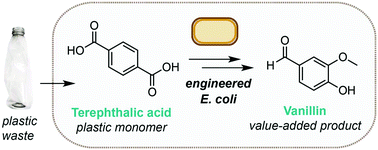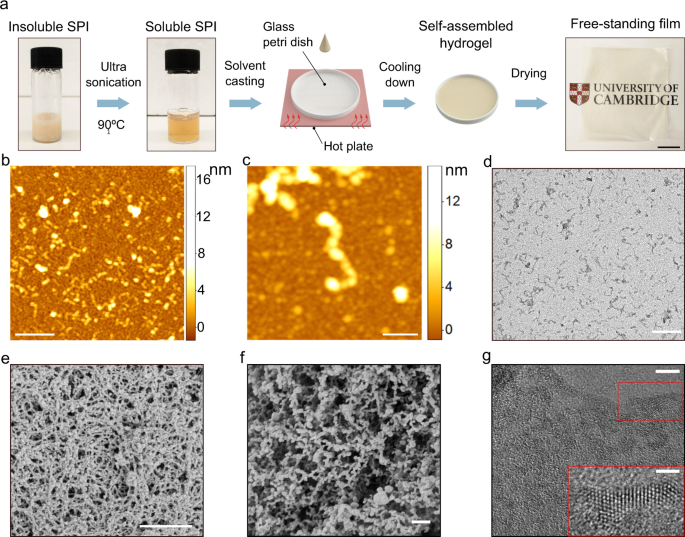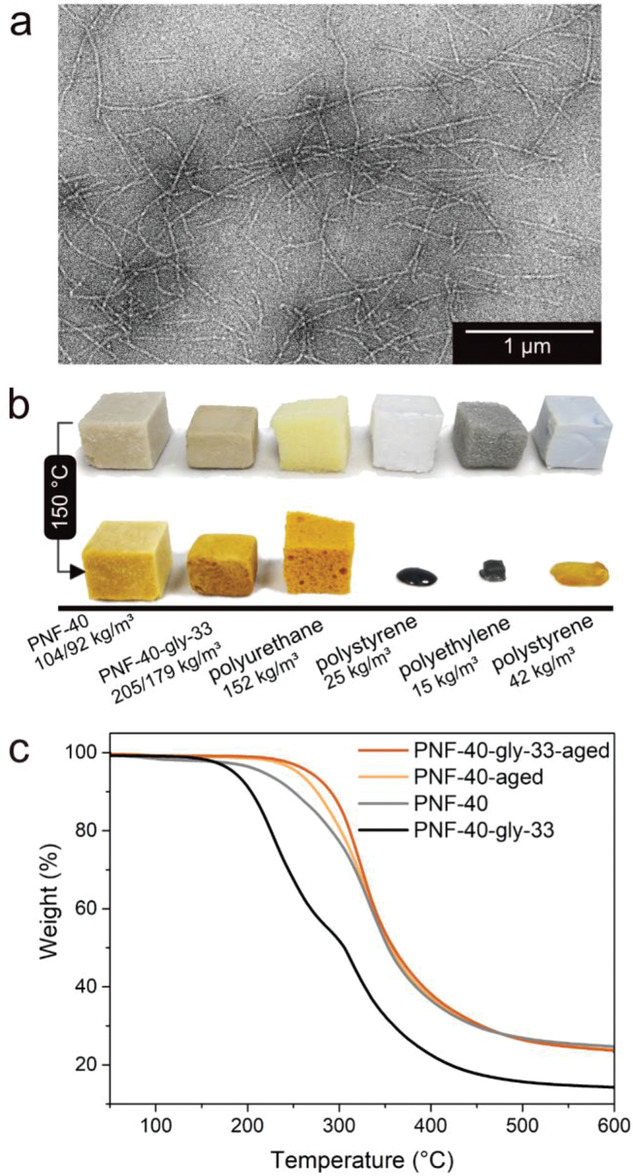2021-06-10 英国・エディンバラ大学
・ エディンバラ大学が、遺伝子組み換えした大腸菌(E.Coli)を利用して、PET(ポリエチレンテレフタレート)ボトルの原料のテレフタル酸(TA)を、一連の化学反応によるアップサイクルにより有用な化学物資のバニリンに変換する技術を開発。
・ バニラの香りの主成分であるバニリンは、食品、化粧品産業で幅広く利用される他に、除草剤や消泡剤、洗浄剤の製造にも使用されている。2018 年のバニリンの世界需要は 3 万 7 千トンを超える。
・ 毎年約 5 千万トンもの PET ボトルが廃棄されており、深刻な環境的・経済的な影響が懸念されている。PET ボトルはリサイクル可能だが、既存のプロセスで作る製品もまた、世界のプラスチック汚染の一要因となっている。
・ 劣化した廃棄プラスチックに同大腸菌を加えることで、PET ボトルをバニリンに変換できることを実証。同プロセスの最適化により TA の 79%をバニリンに変換し、バニリン生産量を工業レベルに引き上げる基盤を構築した。得られたバニリンは食用可能であるが、継続した実験の実施が必要。
・ 本研究は、生物学的システムを利用してプラスチック廃棄物を高価値の産業用化学物質にアップサイクルする初めての事例であり、循環型経済の実現に多大な影響を及ぼすものと考える。
・ 本研究には、英国バイオテクノロジー・生物化学研究会議(BBSRC)の Discovery Fellowship および英国研究・イノベーション機構(UKRI)の Future Leaders Fellowship が資金を提供した。
URL: https://www.ed.ac.uk/news/2021/bacteria-serves-tasty-solution-to-plastic-crisis
<NEDO海外技術情報より>
(関連情報)
Green Chemistry 掲載論文(フルテキスト)
Microbial synthesis of vanillin from waste poly(ethylene terephthalate)
URL: https://pubs.rsc.org/en/content/articlelanding/2021/GC/D1GC00931A#!divAbstract
Abstract
Poly(ethylene terephthalate) (PET) is an abundant and extremely useful material, with widespread applications across society. However, there is an urgent need to develop technologies to valorise post-consumer PET waste to tackle plastic pollution and move towards a circular economy. Whilst PET degradation and recycling technologies have been reported, examples focus on repurposing the resultant monomers to produce more PET or other second-generation materials. Herein, we report a novel pathway in engineered Escherichia coli for the direct upcycling of PET derived monomer terephthalic acid into the value-added small molecule vanillin, a flavour compound ubiquitous in the food and cosmetic industries, and an important bulk chemical. After process optimisation, 79% conversion to vanillin from TA was achieved, a 157-fold improvement over our initial conditions. Parameters such as temperature, cell permeabilisation and in situ product removal were key to maximising vanillin titres. Finally, we demonstrate the conversion of post-consumer PET from a plastic bottle into vanillin by coupling the pathway with enzyme-catalysed PET hydrolysis. This work demonstrates the first biological upcycling of post-consumer plastic waste into vanillin using an engineered microorganism.




